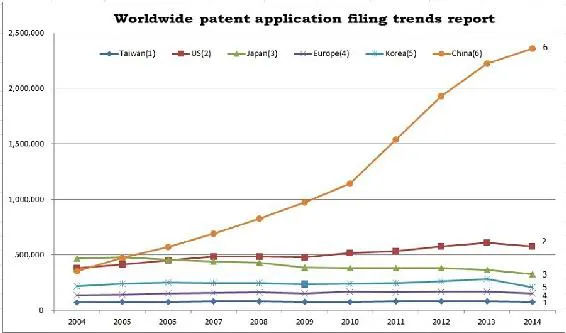
Monetizing IP in China
Jili Chung, 鐘基立
- English
- ePUB (mobile friendly)
- Available on iOS & Android
Monetizing IP in China
Jili Chung, 鐘基立
About This Book
Preface
This book consists of three parts.
Part I covers facts. It provides straight forward state-ments of various stories or incidents relating to IP monetization in China.
A reader may feel the observations, though fascinating, are somewhat disorganized. That is exactly the case in China. So, we need Part II.
Part II organizes and analyzes these facts with “three axes” that dominate any IP monetization deal. The three axes are IP’s creation, IP pledge (IP as collateral to a loan), and risk mitigation.
In this part, we conduct the analysis against the developing regulatory regime. This provides additional infor¬mation to a more serious planner for IP monetization in China.
Part III is a concise endnote highlighting certain strategic guidelines for IP monetization in China.
We assume the readers to be foreign investors in China or foreign entities in other countries hoping to benefit from enhancing their IP utilization in China. Such readers may have a grasp of the basics when it comes to the Chinese IP environment, but are seek-ing a better understanding of the most recent phenomena, or hope to improve their approach in seizing the opportunities of IP monetization in China.
Readers who will most benefit from this book are: (1) promoters wishing to monetize their IP in China, (2) foreign investors in China, especially those in cul-tural and creative industries or high-tech industries, (3) legal, accounting or consulting professionals ad-vising on doing business in China, and (4) observers or commentators following China’s development in the IP regime.
Special thanks to Huan-Yi Lin, who comments on the substance of the content, to Paul Bendemire, who contributes his views from a perspective of global IP professional, and to T-Bone (Eric Shih) and Amber Yu for their art and design.
This book includes the following features about IP monetization in China
First-time disclosed real life cases and market intelligence
up-to-date statistics
? Effective analytical tools to decipher the contemporary phenomena
? Insights and observations on the trends
? A concise strategy summary for seizing business opportunities
Readers who will most benefit from this book are:
? Promoters wishing to monetize their IP into China
? Foreign investors in China, especially those in cultural and creative industries or high-tech industries
? Legal, accounting or consulting professionals advising clients on doing business in China
? Observers or commentators following China’s development in IP regime
Frequently asked questions
Information
Part I Observations on IP Monetization in China
- Highlights of dynamic development: The selected highlights cover topics of the most popular market intelligence about IP monetization in China, a good quick overview of the current status for the first-timer to this energetic environment.
- Planned economy and regulatory regime: One can really understand China only after understanding the role of the planned economy and hierarchy of its regulatory regime. They may not appear organized at glance. However, if interpreted with the right angels, the apparent chaos immediately becomes sensible. Fundamental principles, policies, and regulatory regimes, are actually consistent, coherent and predictable.
- Spirit of experimentalism: Spirit of experimentalism or pragmatism provides an insightful view to the social and economic regimes. They also provide complementary perspectives to better understand the regulatory regime. This is especially true for IP monetization. The philosophy can sometimes serve as a compass for steering IP monetization projects through uncharted waters in China.
- From quantity to quality: Quantitative changes may result in qualitative changes. This rule applies well to IP monetization in China. Such transformation is taking place in IP monetization with several driving forces.
- Excess liquidity in certain sectors: Economic restructuring and excess liquidity are not only hot topics in China but also present opportunities. As government is tackling these issues, private money is eager to seek investment targets, fueling IP monetization.
- Highlights of Dynamic Developments

- As early as 2005, the movie Curse of the Gold Flower1 secured a 10 million USD loan with collateral of the pre-sale contract of the box office (i.e., the rights to the sales revenue under the pre-sale contracts, a form of royalties derived by the copyright, are pledged to the lender).
- In 2007, the movie Assembly2 secured a 0.5 billion RMB loan with IP as collateral in its early stage of production.
- In 2008, the Beijing Municipal Government launched a pilot program for copyright pledge. Three major market players3 secured packaged loans with the collateral of a joint IP pool formed by their underlying copyrights.